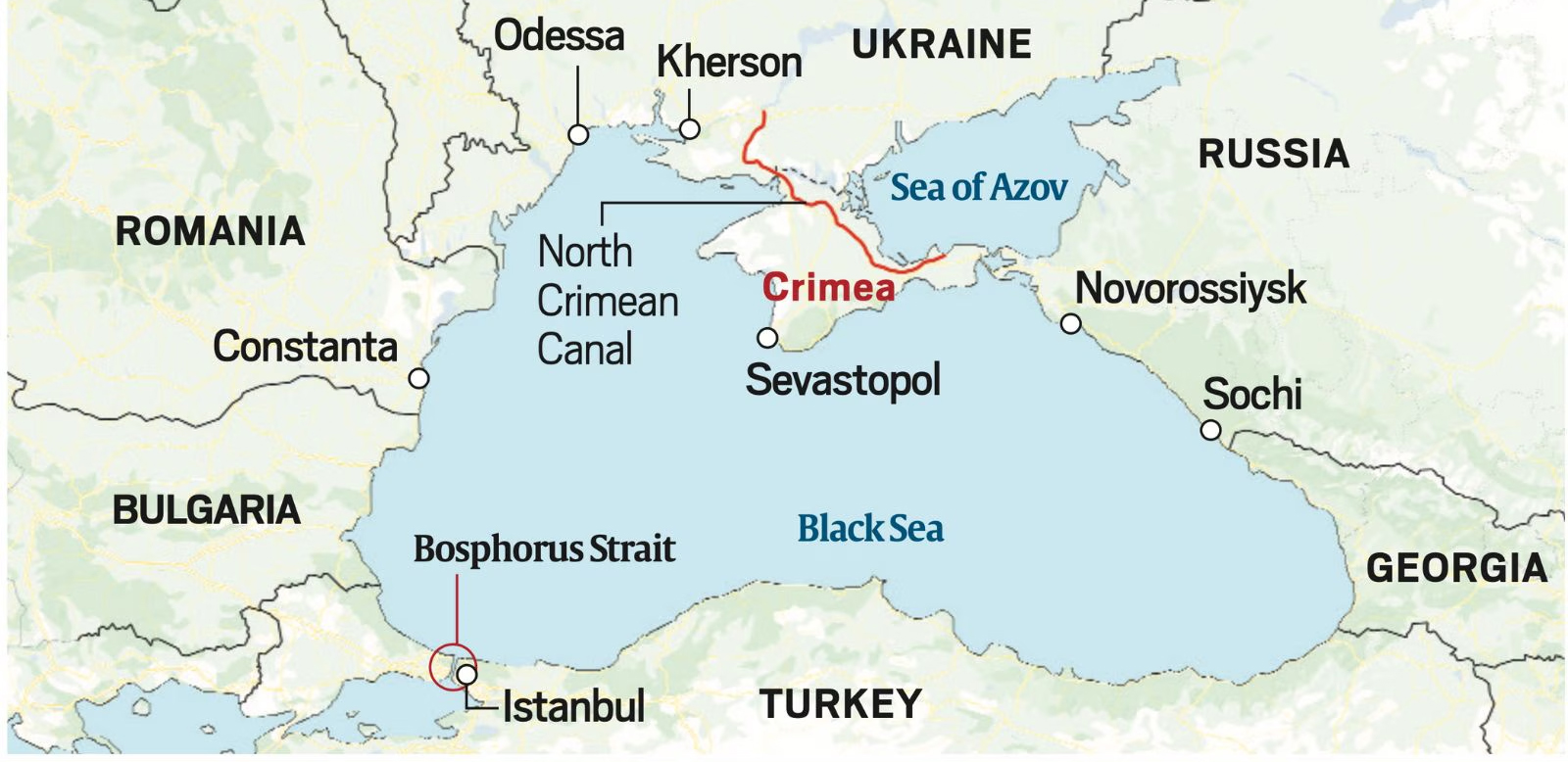Context:
The U.S. President Donald Trump has sparked debate by proposing a peace deal that would involve the United States formally recognizing Crimea as part of Russia. This proposal, intended to help end the ongoing war in Ukraine, would reverse decades of American foreign policy, which has opposed changing borders by force. It has also raised concerns around the world about weakening international rules and the possible impact on other sensitive regions.
Significance of Crimea to Russia
1. Maritime Access and Naval Power
- Gateway to the Mediterranean: Through the Black Sea, Crimea provides Russia with its only direct maritime route to the Mediterranean via the Bosphorus and Dardanelles straits.
- Strategic Naval Hub: The port city of Sevastopol is home to Russia’s Black Sea Fleet. Unlike Russia’s other Black Sea ports, Sevastopol offers deep waters suitable for major naval deployments year-round.
2. Warm-Water Ports:
Russian foreign policy since Tsarist times has prioritized the acquisition of warm-water ports that remain ice-free during winter. Crimea fulfills this enduring strategic objective, first articulated in the 18th century and reaffirmed throughout Soviet and post-Soviet history.
3. Water Security through the North Crimean Canal
Crimea’s arid climate means it relies heavily on the North Crimean Canal, which channels water from Ukraine’s Dnieper River. After the 2014 annexation, Ukraine blocked the canal, cutting off 85% of Crimea’s water supply. Russia’s military strategy in 2022 included the occupation of Kherson and the destruction of the canal dam to restore water flow.
Trump’s Proposal and Geopolitical Implications
1. Reversing U.S. Foreign Policy
- Since 2014, the U.S. has consistently refused to recognize Russia’s annexation of Crimea.
- A formal reversal would legitimize territorial conquest by force, undermining international law and potentially encouraging similar actions elsewhere.
2. Global Ramifications
- Ukraine’s Response: Ukrainian President Volodymyr Zelenskyy has clearly rejected any agreement that involves giving up Ukrainian territory.
- Authoritarian Precedent: Analysts warn that recognizing Crimea as part of Russia could encourage China to take stronger actions toward Taiwan or increase military activities in the South China Sea.
About Crimea Peninsula
|
Feature |
Details |
|
Location |
Eastern Europe, bordered by the Black Sea and the Sea of Azov |
|
Connectivity |
Connected to Ukraine via the Isthmus of Perekop and to Russia through the Crimean Bridge over the Kerch Strait |
|
Geopolitical Neighbours |
Maritime proximity to Romania (west) and Turkey (south) |
|
Key Terrain |
Crimean Mountains (Ai-Petri peak), small rivers like Salhir and Alma, Arabat Spit separating Syvash lagoons from Sea of Azov |
Conclusion
Crimea is a central issue in the Russia-Ukraine war — not just as a piece of land, but as a symbol of sovereignty, military strength, and global political influence. Trump’s proposal could offer a possible way to end a long and difficult conflict, but it would also challenge international rules and affect Ukraine’s territorial rights. Whether the world chooses peace through compromise or continues the conflict to defend principles, Crimea will remain a key focus in this ongoing 21st-century struggle.







